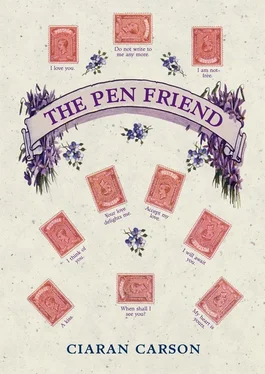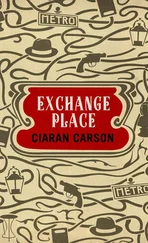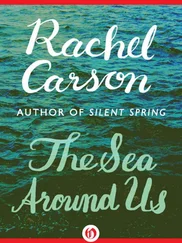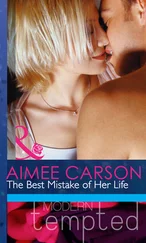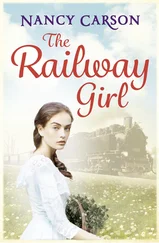I open the pen cabinet in my mind’s eye to see the pens like jewels, no two of them alike, the Conway Stewarts in casings of Teal Blue with Green Veins, Blue Cracked Ice, Autumn Leaves, Peacock, Grey Jazz, Candy-stripe Relief, Red Jazz, Blue Jazz, Blue Rock Face, Moss Agate, Pink Moiré, and Salmon Pink with Grey-green Flecks, to name but some.
I have a tray of Pelikans, like German burghers in their uniforms of black tops and trouser-barrels of striped green, brown and blue and grey, and the long Pelikan beak-shaped clip sitting against the black top like a gold tie with an upturned tip. I have a block of Parker Vacumatics in silver blues and greys, and if you stand them on end they look like skyscrapers at night with patterned strips of lit windows. I have a sheaf of Sheaffers and a quiverful of Swans and Blackbirds.
I’m writing this with an Onoto, which I chose because its Tiger’s Eye pattern of iridescent tawny browns and ambers matches the back of a hairbrush on your dressing-table. I got it from Beringer when I was starting off collecting, one of the first pens I bought. Lovely thing, Mr Gabriel, attractive name too, said Beringer, Japanese, wouldn’t you think? But no, English as Brighton rock. Made by Thomas De La Rue and Company, London, best printers in the world, Queen Victoria grants them a licence to print the stamps of the Empire. Immensely wealthy. Literally printed money. Banknotes, run your fingers over them, you can feel the engraving. Made diaries, too, stationery, playing cards, that kind of thing. It’s 1905, they decide to make pens. Fountain pens a new-fangled thing, expanding market. Logical step. So they look around for a new angle, most fountain pens were what they call eyedroppers, you had to unscrew them and fill them with an eyedropper. Messy business. So they get hold of this inventor chap, George Sweetser, comes up with a patent for a plunger mechanism, piston if you like, steam engine technology — here, I’ll show you — and Beringer showed me how to unscrew the blind cap on the end of the barrel and pull out the plunger. Funny thing is, said Beringer, you push it in, it fills on the downstroke, not what you’d expect. Vacuum system, ingenious. Opposite of a syringe. And of course you use ink instead of blood. You won’t be going signing your name in blood, Mr Gabriel? Funny thing about Sweetser, too, he was a roller-skating champion, did a music-hall act dressed up as a woman. If you made it up people wouldn’t believe you. Anyway, 1905, they buy Sweetser’s plunger pen. The same year, Battle of Tsushima, Admiral Togo blows the Russian fleet out of the water. End of Russo-Japanese War. So De La Rue thinks, fair play, better keep in with the Land of the Rising Sun, British interests in the Pacific, don’t you know. So they call the pen Onoto, Japanese ring to it. They have a sun logo on some of their pens, not this one. Here’s a thing — he rummaged under the counter — novel by Onoto Watanna, real name Winnifred Eaton, English father, Chinese mother, born in Canada. Dresses herself up in kimonos, does the whole Japanese thing, Americans think she is Japanese. He proffered me the book. The Heart of Hyacinth , he said,1903, not that rare mind you, they printed a couple of hundred thousand, and not great literature, to tell you the truth, but a big hit in its day, and a nice genre piece. Lovely illustrations, I’ll tell you what, I’ll throw it in with the pen. Two Onotos for the price of one. Oh yes, said Beringer, the pen’s a 1948 model. Year that you were born, if my memory serves me right. It does, I said.
So here I am in Eglantine Avenue in 1982, the 1950 Lalique bottle with the intertwining doves is on your drawing-room dressing table, and the hi-fi is playing ‘Gloomy Sunday’. They called it ‘The Hungarian Suicide Song’, you said. Two Hungarians wrote the original, Rezso Seress the music, Laszlo Javor the lyrics, in, oh, 1933. The story goes that after it came out there was a spate of suicides among young lovers in Hungary. They’d find them dead in their apartment or whatever, empty syringe beside them, ‘Gloomy Sunday’ on the record player. Or the neighbours hear gunshots and when they burst in the record is still playing. Or the lovers leave a suicide note with ‘Gloomy Sunday’ written on it, nothing else. Well, it’s the Depression after all, and Hungary’s got the highest rate of suicide in the world, the song is in the air, so maybe there’s some truth in the story. Then an English version came out in the States, about 1936, and the same thing began to happen, so they say, lovers killing themselves all over the place. They say they banned it from the airwaves, the BBC banned it, but no one seems to have been able to come up with any hard evidence. They say this, they say that. Maybe the whole thing’s an urban myth. All we can be sure of, Seress jumped to his death from his apartment block in 1968. That’s, what, thirty-five years later, very delayed reaction, I would have said. As you spoke, I thought of Andy Warhol’s images of suicides, one in particular where the victim looks asleep amid the sculpted marble drapery of a baroque tomb; but when we look closer, we find her bed is the crumpled metal sheet of the car roof she has landed on. Yet she seems to have found some repose and grace, as if Divine mercy has been shown.
Soon there’ll be candles and prayers that are sad, I knowLet them not weep, let them know that I’m glad to go …
Funny thing is, you went on, the English lyrics are nothing like the Hungarian. Not that my Hungarian is up to much, but I came across a translation once, oh, something like, it is autumn and the leaves are falling, all love has died on earth, people are heartless and wicked, there are dead people on the streets everywhere, that kind of thing. Billie’s version came out in 1942, not long after Pearl Harbor. Not the happiest of times, in any event. And they say that Billie’s third verse was an afterthought, a kind of palliative to lighten the gloom of the first two.
Dreaming, I was only dreamingI wake and I find you asleep in the deep of my heart, dearDarling, I hope that my dream never haunted youMy heart is telling you how much I wanted youGloomy Sunday
It’s dark by now and I’m in Ophir Gardens casting my mind back to Eglantine Avenue over the dark gulf of intervening time, and it’s dark by now there too. The record comes to an end and I think how there seemed to be more hiss and crackle on your vinyl copy, more of the atmospherics of lost time, forty years since Billie laid the track down and I imagine the dust of 1942 sifting down into the grooves of the recording back then, getting into the voice and the instruments, and making that slight lisp in her enunciation all the more poignant.
You got up and drew the curtains and the noise of the wind in the trees outside died to a whisper. I can see her with that white gardenia in her hair, you said, isn’t it strange how the song makes you see the singer, she’s standing in a spotlight in a bar in New York, you said, and it’s dark but there’s those little tea-lights in faceted glass holders on the tables and you can see hands holding cigarettes and cocktail glasses, a face or two maybe, the smoke curling up and drifting into the spotlight, and I think how strange it is that your few words, But so hard to forget , should make me see you as you were then, or what you have become to me since then. I see the blue vein in the back of your hand as you write and you go over to lift the needle from where it’s bumping at the end of the last track. You know, she took her name from Billie Dove, you said, her favourite movie star, her real name was Eleanora Fagan Gough. Her father was Holiday but she hardly ever saw him, I think she took his name as a kind of accusation, or revenge. Not that you’d ever know from her autobiography, they say she made half of it up, you said. Billie Dove.
Читать дальше
